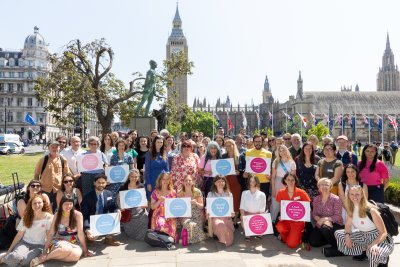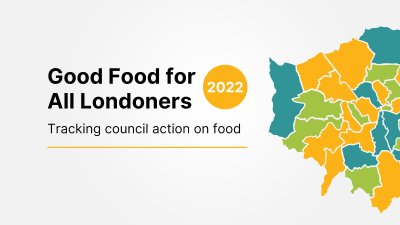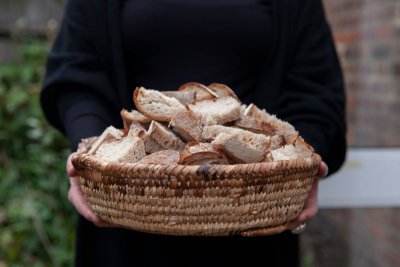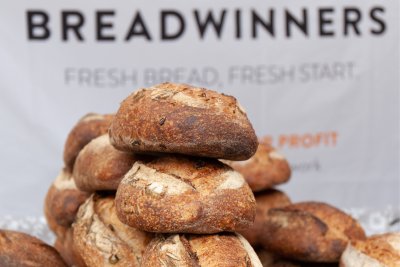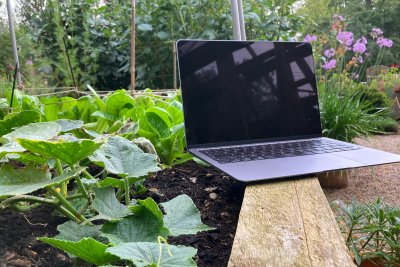Response by London Food Link to the inquiry into London's allotments
We'd first like to thank you for running this inquiry into allotments, which are an important part of London's food system, and have a major and positive impact upon many people from different walks of life all across the capital. London Food Link is part of the charity Sustain: the alliance for better food and farming, and we run a network of over 100 organisations and individuals, with members as diverse as farmers, food writers, caterers and community food projects. Both London Food Link and its members run projects that help to:
- increase the availability of sustainable food in London;
- tackle the barriers preventing access to sustainable food for all Londoners;
- celebrate and protect London's diverse food culture.
In responding to this inquiry, we have endeavoured to consult our network, and particularly those who are involved in allotments directly, although this has proved difficult over August. However, we are confident that the views expressed below are broadly representative of London Food Link's network.
We have identified the following issues which we would like to see addressed, specifically the need for:
- More allotments/community growing space in central London
- A mechanism to match up the demand in central London with the excess supply in the outskirts, particularly for those potential plot holders prepared to travel.
- A named officer responsible for allotments in each borough.
- An accurate survey of London allotment provision, with results available online.
1. More allotments/community growing space in central London
This policy is supported by the Mayor's food strategy Healthy and Sustainable food for London. This strategy, launched in May this year lists the following as one of its 35 priority actions:
'To expand individual and community growing in response to demand (e.g. allotments, community gardens, parks and open spaces, school grounds, etc.).'
This is so that
'more of London's food will be 'local' and diverse – that is, wherever practical , it will come from the surrounding area, neighbouring regions and from elsewhere within the UK and reflect the consumer preferences of London's increasingly diverse population.'
That said, many of London's allotments are still threatened by development so there needs to be more rigourous enforcement of government legislation to protect allotments. This should ensure the legislation is reflected in tangible changes in the practice of developers.
We would also recommend that the role of mixed community gardens/allotment plots is considered when expanding growing spaces in London. Culpeper Community Gardens, in Islington, is a good example of where an existing park has been combined with a community garden, thereby maintaining a public area but also creating a place where local residents are able to grow their own produce. In areas with little green/open space, there are also alternative ways for allowing local residents to produce their own food, for example bee-keeping or mushroom production. We believe there is a need for more investigation into how alternative schemes like these might work where there is not adequate provision of allotments.
2. A mechanism to match up the demand in central London with the excess supply in the outskirts,
and
3. A named officer responsible for allotments in each borough
Such a mechanism could be developed if more funding was available to the London Borough's allotments officers forum, which meets quarterly and includes the allotment officers from those boroughs that have them. This fledgling forum emerged from the space left by the failed Greater London Allotment Forum, and the main contact is Jeff Barber, available through julia.barber@freeuk.com. The forum would be greatly strengthened if each borough allocated an officer to be responsible for allotments, and for these officers to be part of this forum.
4. An accurate survey of London allotment provision, with results available online
Such a survey would also be helpful in matching demand and supply. We have suggested to the London Borough's allotments officers forum that if a demand and supply 'dating agency' were to be created in the process of a survey, London Food Link would be very happy to offer its website to host this information, as it already receives a lot of traffic.
We hope these points are helpful, and please feel to contact me if you have any queries on 0203 5596 777 or ben@sustainweb.org.
Published Monday 1 January 2007
London Food Link: London Food Link brings together community food enterprises and projects that are working to make good food accessible to everyone in London to help create a healthy, sustainable and ethical food system for all.
